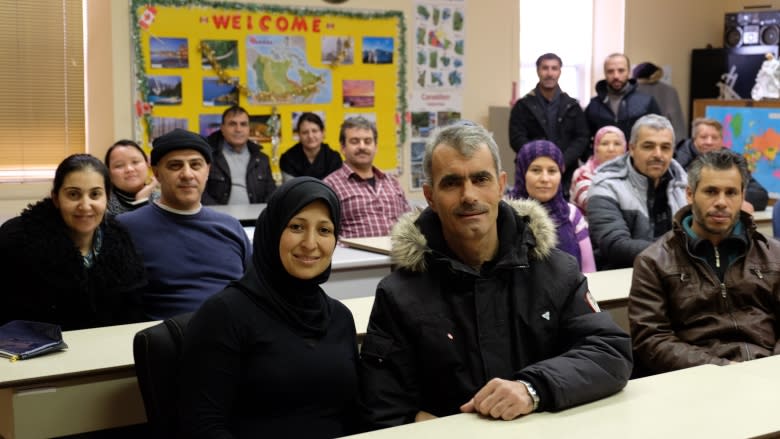Immigrants with unrecognized credentials offered help scaling barriers
No matter their academic degrees, training or experience, many immigrants face the same barrier: their credentials don't count for much on the job market.
Now the New Brunswick Multicultural Association has launched a loan program to help newcomers and permanent residents get over that barrier by upgrading their credentials.
The career pathway program will make loans of up to $15,000 available to people who have been internationally trained but who can't get jobs in their fields because their credentials aren't recognized, said Alex LeBlanc, the executive director of the association.
Applicants must have credentials that are valid in their home countries, be unemployed or under-employed, have significant language skills in either English or French, and be accepted into whatever upgrading program the loan will be used for.
LeBlanc told Information Morning Fredericton that in past years, about a quarter of immigrants settling in New Brunswick arrived with jobs.
But many face financial obstacles that include the cost of writing exams, paying tuition, and living or travel expenses related to getting their credentials recognized in Canada.
The interest rate on a career pathway loan is prime plus one per cent and the borrower will make interest-only payments while studying.
The loans will help immigrants build their credit, LeBlanc said. They'll have up to five years to repay the loan.
LeBlanc said the project evolved from a pilot program offered in seven Canadian cities.
"The pilot was created because there was data to support that there was a financial element to why immigrants were having trouble getting their credentials recognized," he said.
The economic loss
The pilot tested different types of loan styles and found that short-term, small loans proved most effective.
LeBlanc said most people borrow about $6,500.
Fifty per cent of the people who accessed loans through the pilot project got full-time jobs.
"The default rate was one per cent or less," LeBlalnc said. "They were accessing the loan, it was accelerating their progress, they were getting better earnings and higher earnings and an increase in full-time employment."
LeBlanc said a number of studies have been done on the lack of recognition of foreign credentials and its impact on the economy.
"The various studies over the last number of years have it anywhere between $15 billion and $20 billion a year in lost economic activity," he said.
Brain Gain 2015, a report by the Conference Board of Canada, said there were 524,000 international credential holders in the country and 92 per cent of these were immigrants. In 2015, between $13.4 billion and $17 billion was lost in earnings.
Unemployed people lost between $8.4 billion to $8.7 billion and under-employed between $5 billion and $8.3 billion.
How it works
According to LeBlanc, each profession has a regulatory body, such as the College of Physicans and Surgeon of New Brunswick, that has to verify credentials.
A person would have to contact the regulatory body to find out what needs to be done to have credentials recognized.
"For medical doctors it's complicated, they have to do a residency again in Canada and the number of residencies available to internationally trained doctors is quite low," he said.
LeBlanc said only about two per cent of residencies are available to international doctors.
International doctors may want to look instead at other jobs in the medical field, and the career pathway program can help with that.
'It comes as a surprise'
For many immigrants their unrecognized credentials are frustrating.
"It comes as a surprise to internationally trained workers that come here," LeBlanc said. "And part of that is because of the way our immigration is designed."
Immigrants get more points for higher education and language, and points help them get into the country. The country initially values their education and langauge skills, but they can't use them when they get to Canada without first upgrading.
He said telling international workers that their credentials may not be recognized in the country will influence their decision.
"The immigrant system is continually learning," he said.


